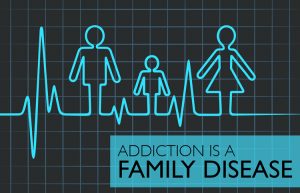By Leah Claire Bennett, PhD, and Peter Kamp, MD
The Opioid Crisis:
How Your Family Can Help
At the end of May 2018, the Washington Post reported that troopers found enough fentanyl in a Nebraskan truck to kill every Mississippian—in fact, enough to kill 26 million people. Fentanyl is an opiate drug that is 50 to 100 times more potent than morphine, which means that small doses could very quickly lead to death.
Drug dealers are combining this very potent drug with other opiate drugs such as heroin in order to make their drugs “the good stuff.” When people use these drugs laced with fentanyl, death can happen in as few as 60 seconds, rendering medical intervention nearly impossible. To make things more hazardous, the individuals using these drugs often do not know if what they are buying actually contains fentanyl. All of these factors combined mean drug dealers and users have taken playing with fire to a new level of dangerousness.
With stories such as these, you may wonder what progress, if any, has been made to address the opioid crisis. Still today an estimated 174 individuals die per day of an opioid-related overdose in America. There are discussions on many different levels occurring within the legislative, judicial, and healthcare systems, which are all trying to find the best way to quickly turn this problem around.
However, there is another system that can initiate change in this problem—the family system. You may wonder how you and your family could change such a massive problem, but as you know change must start somewhere. Why not be armed with the knowledge you need to keep you and your family safe?
Below are three recommendations for families:
-
Seek Alternatives First.
If you, or a loved one, have pain and go to the doctor for help, make sure other non-opioid alternatives are tried first.
Research by the American Medical Association shows that for acute pain a combination of acetaminophen and ibuprofen has the same level of pain reduction as combinations with opioids. Other research on chronic pain has also suggested that long-term use of opiates leads to a poorer quality of life.
Therefore, be an informed consumer and talk with your doctor about ALL of your options for pain relief, including yoga, acupuncture, talk therapy, physical therapy, exercise, massage, and biofeedback just to name a few.
-
Lock Up and Dispose.
Do you have a medicine cabinet at home full of old leftover medications? Periodically cleaning out old medications helps keep your family safe by preventing abuse.
Walgreens and CVS now have disposal kiosks in several of their stores. You can also call the local police department about safe disposal. These methods are safer for the environment because incineration is used instead of them being flushed down the drain or put in the garbage.
-
Get Help Quickly.
Know the signs of abuse and get help immediately if you see a problem developing in someone you love. Signs include: Initial euphoria or happiness followed by a sense of tiredness; constricted pupils; nodding off or loss of consciousness; slowed breathing; changes in routines and habits; irritability; nervousness; and dishonesty.
Know that people die of opiate overdoses because they stop breathing and drugs such as naloxone can immediately save a person by reversing the effects of the opiates and restoring breathing patterns to normal.
Residential or outpatient treatment may be necessary to help your loved one learn the skills necessary to stop the habit of drug abuse. If you have questions, do not be afraid of asking for help.
We may be some time away from solving this national crisis, but by being aware and willing to take action in your family, we will be a few steps closer.

Dr. Leah Claire Bennett is the Clinical Operations Director for Pine Grove’s addiction treatment programs including the Women’s Center, Legacy, Gratitude, Next Step, and professional treatment programs.

Dr. Peter Kamp joined the staff of Pine Grove Behavioral Health & Addiction Services in 1991 and currently sees patients in an outpatient setting for assessment and medication management.
.


